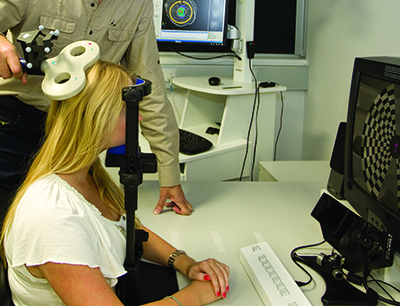Research experience
If you are interested in advancing your research capability, the School of Psychology offers a number of great opportunities.
UQ Summer and Winter Research Programs
Coordinated by the UQ Student Employability Centre, these programs provide an opportunity for scholars to work with a researcher in a formal research environment in their area of interest.
 By participating in a program students will gain valuable academic and professional opportunities, develop analytical, critical thinking, and communication skills, and have an opportunity to cultivate links with industry and academic contacts.
By participating in a program students will gain valuable academic and professional opportunities, develop analytical, critical thinking, and communication skills, and have an opportunity to cultivate links with industry and academic contacts.
It is also a chance to ‘test drive’ research before embarking on further research studies or higher degree research projects.
Participation is open to undergraduate students (BPsySc, BA, BSc), including honours and Masters by coursework students.
Successful applicants are likely to have studied psychology for at least two years, or can demonstrate an equivalent level of knowledge and skills in the discipline.
All students participating in the summer and winter programs will receive a scholarship.
Please note that no course credit is offered in the summer and winter research programs.
Summer Research Program
View the list of Summer Research Program projects and supervisors.
Research projects are available for between 6-10 weeks over the summer vacation period (from mid-November to mid-February).
Apply for the Summer Research Program
Winter Research Program
View the list of Winter Research Program projects and supervisors.
Research projects are available for 4 weeks over the winter vacation period (from mid-June to mid-July).
Apply for the Winter Research Program
Please direct all other queries to psyresearch@psy.uq.edu.au.
School of Psychology research experience courses
The School of Psychology offers two one-unit research experience courses as second-year electives: PSYC2991 and PSYC2992.
The goal of these courses is to provide a structured opportunity for undergraduate students to gain experience working on a research project.
